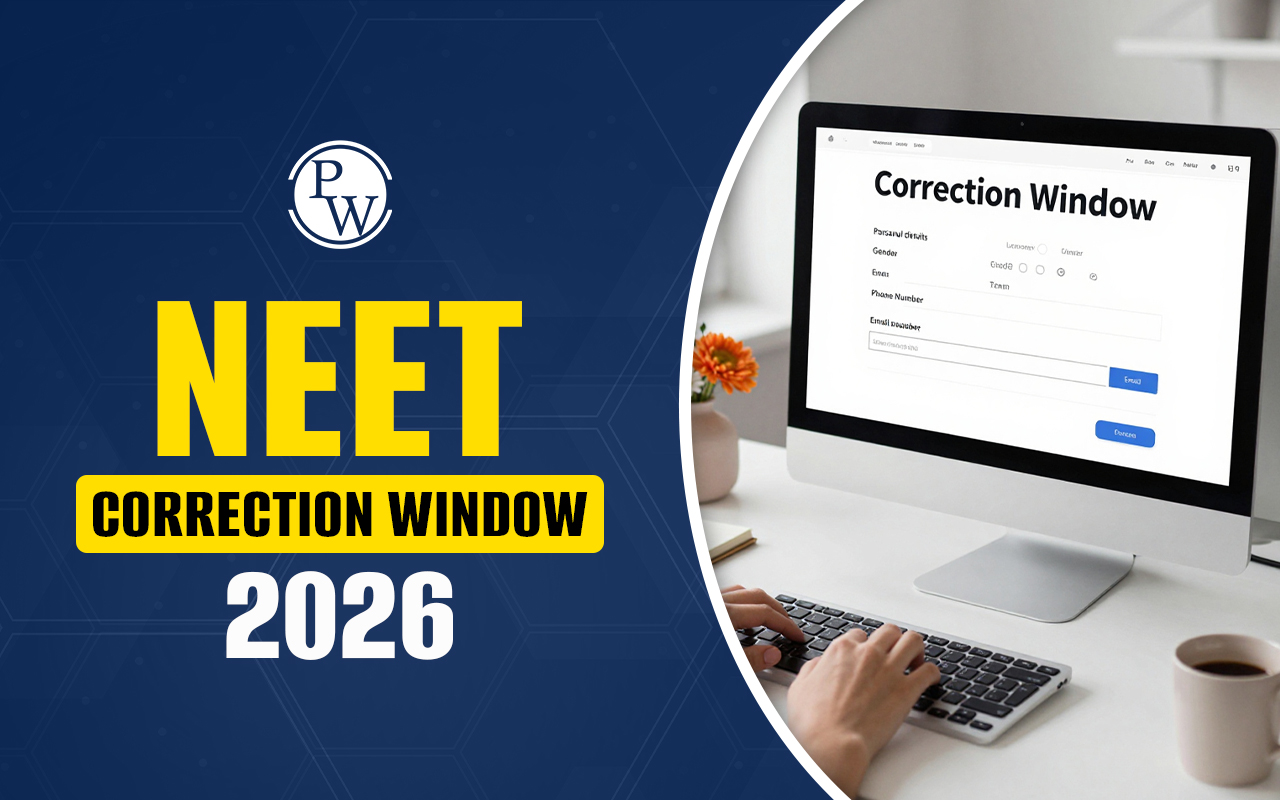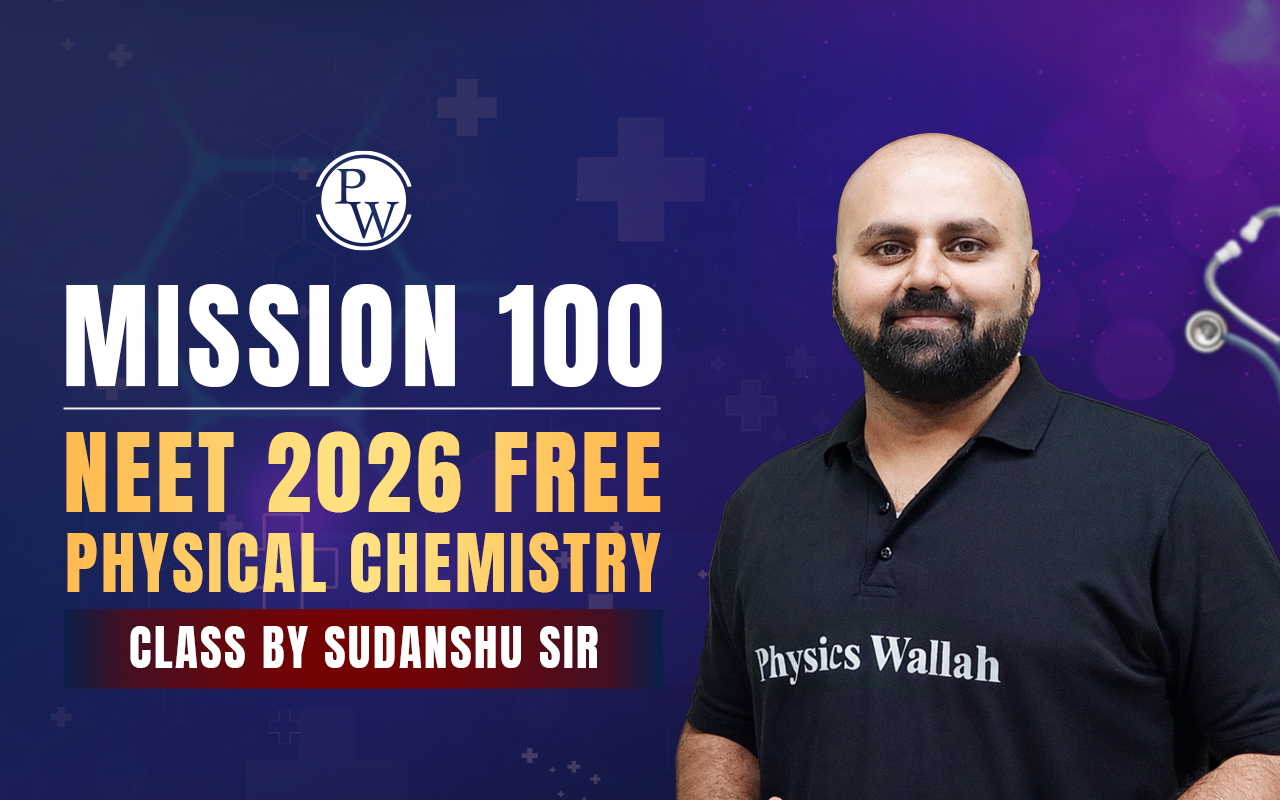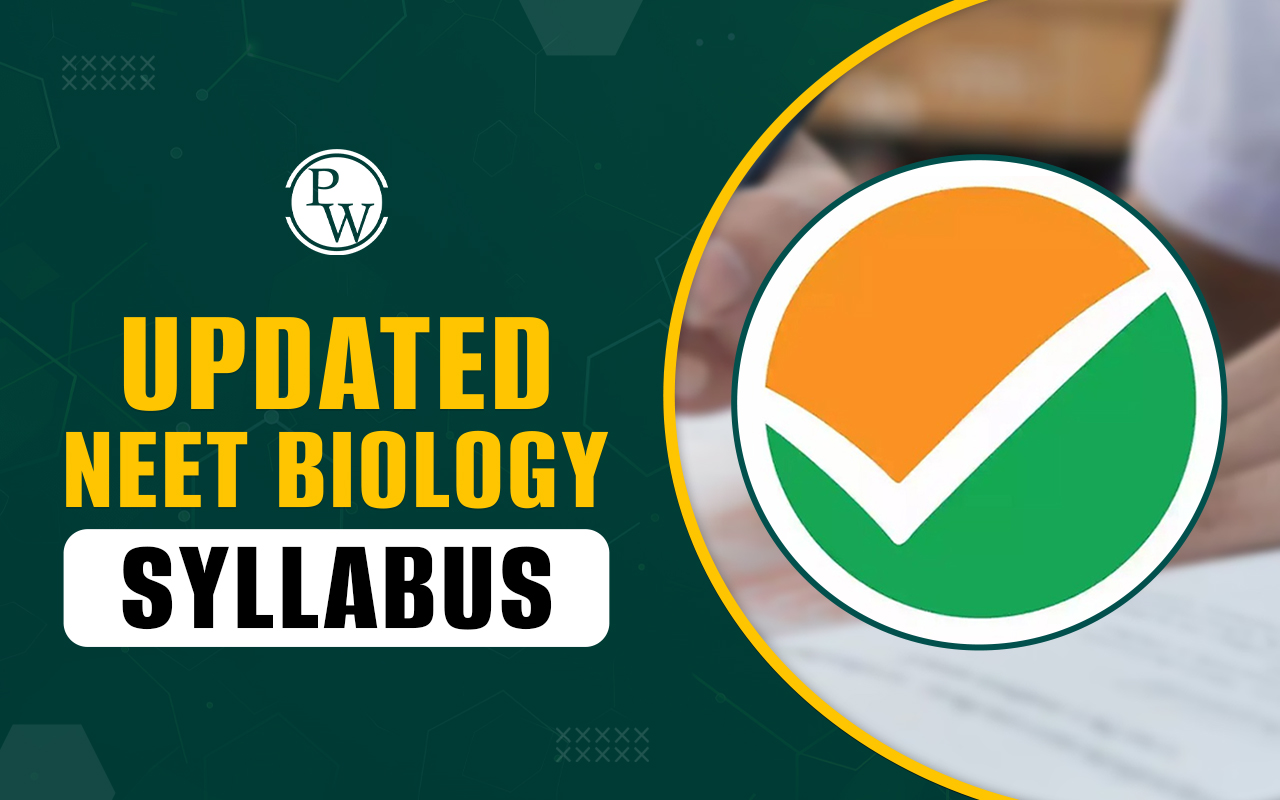
BVSc Course Details: The Bachelor of Veterinary Science (BVSc) program is a comprehensive five-year undergraduate course in veterinary science. Its primary objective is to impart the essential knowledge and skills required for the nourishment, medical treatment, and breeding of animals.
The BVSc program is ideally suited for individuals with a deep passion for animals who aspire to establish a career in animal breeding and care. Per the latest guidelines from the Veterinary Council of India, the course structure spans 5.5 years, encompassing ten semesters and a mandatory one-year internship. In 2017, the All India PreVeterinary Test (AIPVT) was replaced by the National Eligibility cum Entrance Test (NEET) for admissions into veterinary pharmacy and veterinary medicine courses across India. BVSc course admission eligibility requires candidates to complete their Class 12 education with Physics, Chemistry, Biology, and English as mandatory subjects from a recognized educational board. Read the entire article for detailed information on BVSc Course , including detailed course information, BVSc eligibility criteria , BVSc admission procedures , and insights into high paying career opportunities.Check: Armed Force Medical College
BVSc Course Highlights
BVSc Full Form is "Bachelor of Veterinary Science," a program focusing on learning how to prevent, control, diagnose, and treat animal illnesses. The BVSc curriculum is carefully designed to meet the needs of the veterinary industry, offering many job opportunities for students in both the public and private sectors. There are 47 BVSc colleges in India, including prestigious institutions such as the Indian Veterinary Research Institute, College of Veterinary and Animal Sciences, the West Bengal University of Animal and Fishery Sciences, and CSKHPKV, among others.|
BVSc Course Highlights |
|
|---|---|
| Particulars | Details |
| Course Name | Bachelor of Veterinary Science |
| Abbreviation | B.V.Sc |
| Type | Degree |
| Level | Undergraduate |
| Field | Healthcare |
| Eligibility | 10+2 with Physics, Chemistry, and Biology |
| Duration | 5.5 years |
| Average Fee | Rs. 1 Lakhs |
| Average Salary | Rs. 6.4 LPA |
| Career Opportunities | Veterinary Surgeon, Veterinary Doctor, Veterinary Technologist |
| Course Admission Process | Entrance exams (NEET, RPVT, AAU VET, OUAT, UP Veterinary Entrance Exam, BHU UET) |
| Top Recruiters | The Indian Veterinary Research Institute (IVRI), Terzetto Pharma Metrics, PETA India, CRPF paramedical department, Indian Council of Medical Research (ICMR), The Indian Veterinary Association, Vixilanciaa |
Check: Paramedical Courses After 12th
Types of BVSc Courses
In response to the rapid growth of India's IT sector, there has been a significant shift towards online and distance education trends. This shift has also impacted the field of veterinary sciences, with various types of BVSc courses now available to cater to different needs and preferences of students and professionals.BVSc Full-Time Course
The Bachelor of Veterinary Sciences (BVSc) is a highly sought-after medical program, especially among those passionate about animals and their care. To enroll in the full-time BVSc course, candidates must meet certain criteria: Age Requirement: Applicants must be at least 17. Academic Qualification: A minimum of 50% in the relevant subjects at the graduation level is required. The full-time BVSc program typically spans 5 to 5.5 years, providing students with a comprehensive and structured education in veterinary sciences.Check: Paramedical courses list
BVSc Distance Learning Course
While there are notable differences between distance learning and traditional campus-based education, BVSc through distance learning is primarily designed for qualified and practising veterinarians. This mode of education allows them to enhance their knowledge and skills, making them more proficient in their field. Key points about BVSc distance learning include Target Audience: This option is ideal for veterinarians looking to update their skills and knowledge. Assessment: Colleges conduct examinations at the end of the program, with a minimum requirement of 50% marks for course completion. Duration: The course duration varies from one college to another, typically ranging from a few months to over a year. On average, the course can last around 14 weeks.BVSc Online Course
BVSc courses have also found their way onto online platforms such as EdX and Coursera. These online courses offer flexibility and specialization options, making them accessible to a wider audience. Here are some key features of BVSc online courses: Availability: BVSc courses are available on individual online platforms, each with its own unique offerings. Duration: The duration of these online courses varies depending on the platform and the specific specializations offered. They are typically shorter than traditional full-time courses. Flexibility: Unlike traditional programs, BVSc online courses often allow students to select and complete short courses at their own pace. These courses can range from a few days to a few months.Check: Bachelor of Physiotherapy
Why Choose a BVSc Program?
A Bachelor of Veterinary Science (BVSc) program offers a pathway to becoming a veterinarian, a professional dedicated to the well-being of animals. Opting for a BVSc degree opens up various career opportunities in veterinary medicine and related roles. Skills and Knowledge: Students enrolled in a BVSc program thoroughly understand animal diseases, disorders, and treatments. This education equips them with the skills to diagnose, prevent, and treat various animal health issues. Specialization: Graduates from BVSc programs can specialize in either medical or surgical treatment, or even both, depending on their interests and career goals. This specialization allows them to focus on specific aspects of veterinary care. Abundant Job Opportunities: Numerous career opportunities become available upon completing a BVSc degree. One significant option is to establish one's veterinary clinic. In such a clinic, veterinarians offer consultations and treatment services to pet owners seeking assistance for their animals' injuries, disorders, and diseases.Check: BUMS Course
BVSc Course Eligibility Criteria
To qualify for admission into a BVSc program, candidates must fulfil certain BVSc essential criteria:- Age Requirements: Applicants must be at least 17 years old and not exceed the maximum age limit of 25 years.
- Educational Qualification: Candidates should have completed their 12th standard or an equivalent qualification from a recognized educational board.
- Minimum Marks: A minimum of 50% marks in the 12th-grade examination is required to qualify for BVSc admission.
- Compulsory Subjects: In their 10+2 education, candidates must have studied Physics, Chemistry, Biology, and English as compulsory subjects.
Check: BHMS Course
Admission Process for BVSc Course (Bachelor of Veterinary Science)
Getting admission to BVSc can be achieved through two main avenues: entrance examinations and merit-based selection. Many universities and colleges offer BVSc course admission through these methods. Here's a detailed breakdown of the admission process: Eligibility Criteria: Candidates must meet specific eligibility criteria, typically completing their Class 12 education with required subjects, such as Physics, Chemistry, and Biology. Application Procedure: Candidates pursuing BVSc should obtain the application forms. These forms are available through two modes:- Online Application: Visit the university's official website to access and fill out the BVSc application form.
- Offline Application: Visit the Admissions Office of the respective university or college to obtain a physical copy of the BVSc application form.
- Class 12 examination results.
- Valid identification for verification purposes.
BVSc Course Fee Structure
The fee structure for BVSc (Bachelor of Veterinary Science) course can vary significantly based on several factors. These factors include the college's location, the faculty and staff, the course's demand, the infrastructure's quality, and the facilities provided to students. As a result, the BVSc course fees are not fixed and can range from one institution to another. On average, the BVSc course fee in India typically falls in the range of INR 20,000 to 4 lakhs per annum. Here's the fee structure for BVSc in some notable colleges:|
BVSc Course Fee Structure |
||
|---|---|---|
| Sl. No. | Name of the College | Total Fee Structure |
| 1. | Navsari Agricultural University | 45,000 per annum |
| 2. | Bihar Agricultural University | 12,000 per annum |
| 3. | West Bengal University Of Animal And Fishery Sciences | 16,000 per annum |
| 4. | Orissa University Of Agricultural Technology | 21,000 per annum |
| 5. | Sardar Vallabh Bhai Patel University Of Agriculture And Technology | 4 Lakh per annum |
BVSc Course Entrance Exam
Here is a detailed table with key information about the entrance exams required for BVSc admissions. These entrance exams are crucial for aspiring students pursuing a Bachelor of Veterinary Science (BVSc) degree. Each exam has its unique schedule, and candidates should stay updated on the specific dates to ensure they don't miss application deadlines and examination days.|
BVSc Course Entrance Exam |
|
|---|---|
| Exam Name | Exam Date |
| NEET 2023 | May 7, 2023 |
| RPVT 2022 | August 2023 |
| AAU VET 2023 | September 14-16, 2023 |
| UP Veterinary Entrance Exam 2023 | February 2023 (Form release date) |
| OUAT 2023 | October 2023 |
| BHU UET 2023 | April 2023 |
BVSc Courses Specializations
Bachelor of Veterinary Science (BVSc) offers various specializations that delve into distinct aspects of veterinary science. These BVSc specializations are detailed below:|
BVSc Courses Specializations |
|
|---|---|
| Specialization | Description |
| BVSc Animal Genetics and Breeding | Focuses on the genetics and breeding of animals to improve their quality, health, and productivity. |
| BVSc Animal Nutrition | Concentrates on animals' dietary needs and nutrition for their overall well-being and growth. |
| BVSc Veterinary Microbiology | Examines the world of microorganisms and their role in animal diseases and health. |
| BVSc Veterinary Pathology | Involves the study of animal diseases, their causes, and the effects on tissues and organs. |
| BVSc Veterinary Surgery and Radiology | Addresses surgical procedures and diagnostic imaging techniques used in veterinary medicine. |
| BVSc Livestock Production and Management | Covers the efficient management and care of livestock for optimal production and health. |
BVSc Course Syllabus
The BVSc syllabus is comprehensive and spans over 5.5 years, and includes both theoretical and practical aspects. Additionally, there's a one-year cycle of internship program integrated into the course structure. Here, we detail the subjects covered in the BVSc syllabus at Kerala Veterinary and Animal Sciences University.|
BVSc Course Syllabus |
|
|---|---|
| Semester | Subjects |
| Semester 1 | Veterinary Gross Anatomy-I (Osteology, Arthology & Biomechanics), Livestock Production Management-I (General Principles and Ruminants), Veterinary Physiology-I (Blood, Cardiovascular & Excretory Systems, Body Fluids), Biostatistics and Computer Application, General Veterinary Biochemistry, Principles of Animal Nutrition & Feed Technology |
| Semester 2 | Veterinary Gross Anatomy-II (Myology, Neurology, Angiology & Aesthesiology), Livestock Production Management-II (Monogastric and Laboratory Animals), Veterinary Physiology-II (Neuromuscular, Digestive & Respiratory Systems), Principles of Animal Genetics and Population Genetics, Veterinary Intermediary Metabolism, Applied Animal Nutrition-I (Ruminants), Fodder Production & Grassland Management |
| Semester 3 | Veterinary Histology & Embryology, Avian Production Management, General Veterinary Parasitology & Helminthology, Applied Animal Nutrition-II (Non-ruminants, Poultry & Laboratory Animals), General Veterinary Pathology, Livestock and Poultry Breeding, General Veterinary Microbiology, Livestock Farm Practice (Non-Credit) |
| Semester 4 | Veterinary Splanchnology & Applied Anatomy, Systemic Veterinary Pathology, Veterinary Physiology-III (Endocrinology, Reproduction Growth Environmental Physiology), Commercial Poultry Production and Hatchery Management, Veterinary Entomology & Acarology, Livestock Production Management-III (Regional interest), Veterinary Protozoology, Livestock Farm Practice (Non-Credit), Veterinary Immunology and Serology |
| Semester 5 | General and Systemic Veterinary Pharmacology, Milk and Milk Products Technology, Systematic Veterinary Bacteriology & Mycology, Abattoir Practice and Animal Product Technology, Special Veterinary Pathology, Principles and Techniques of Veterinary and A H. Extension, Milk and Meat Hygiene, Food Safety and Public Health |
| Semester 6 | Veterinary Neuropharmacology, Veterinary Epidemiology and Zoonosis, Systematic Veterinary Virology, Meat Science, Avian Pathology, Animal Biotechnology, Aquatic Animal Diseases, Hearth Care and Management, Livestock Economics, Marketing and Business Management |
| Semester 7 | Veterinary Chemotherapy, Veterinary Preventive Medicine-I (Bacterial, Fungal & Rickettsial Diseases), General Veterinary Surgery, Anaesthesiology And Diagnostic Imaging, Veterinary Clinical Biochemistry and Laboratory Diagnosis-I, Veterinary Gynecology, Animal Biotechnology, Veterinary Clinical Medicine-I (General & Systemic), Veterinary Clinical Practice |
| Semester 8 | Veterinary Toxicology, Veterinary Preventive Medicine –II (Viral & Parasitic Diseases), Regional Veterinary Surgery, Veterinary Clinical Practice, Veterinary Obstetrics, Veterinarian in Society (Non Credit), Veterinary Clinical Medicine-II (Metabolic & Deficiency Diseases) |
| Semester 9 | Veterinary Orthopedics and Lameness, Veterinary Andrology and Reproductive Techniques, Animal Welfare, Ethics & Jurisprudence, Environment and Environmental Hygiene, Zoo/Wild Animal Breeding, Management, Nutrition and HealthCare, Livestock Entrepreneurship, Pet Animal Breeding Management, Nutrition and HealthCare, Veterinary Clinical Practice |
Top BVSc Colleges in India
These esteemed institutions offer excellent opportunities for aspiring veterinary professionals to pursue their studies and build successful careers in the field. Here is a detailed table showcasing the top 20 BVSc colleges in India , along with their rankings, eligibility criteria, fees, and average package:|
Top BVSc Colleges in India |
||||
|---|---|---|---|---|
| College Name | ICAR/NIRF Ranking | Eligibility | Fees | Average Package |
| Indian Veterinary Research Institute - [IVRI], Bareilly | ICAR 3 | 50% marks in Science stream in 10+2 or equivalent. | INR 29,500 | INR 1.5 LPA |
| GBPUAT, Pantnagar | ICAR 4 | Passed any HSC equivalent or 10+2 with minimum 50% marks. | INR 57,439 | INR 5 LPA |
| Tamil Nadu Veterinary and Animal Sciences University - [TANUVAS], Tamil Nadu | ICAR 12 | Candidates must secure 50% marks with PCBE in 10+2 or equivalent and appear in the required entrance exam. | INR 21,915 | INR 5 LPA |
| Guru Angad Dev Veterinary and Animal Sciences University - [GADVASU], Ludhiana | ICAR 18 | Class 12 with 50% marks in PCB subjects and valid entrance score. | INR 90,255 | INR 2 LPA |
| Orissa University of Agriculture and Technology - [OUAT], Orissa | ICAR 19 | Class 12 with 50% marks in Science Stream and valid score in OUAT entrance exam. | INR 21,860 | INR 2 LPA |
| West Bengal University of Animal & Fishery Sciences, Kolkata | ICAR 29 | Scored minimum 50 per cent marks with PCB subjects in 10+2. Accepts AIPVT entrance score. | INR 16,320 | - |
| Sardar Vallabh Bhai Patel University of Agriculture and Technology, Meerut | ICAR 35 | Passed 10+2 with minimum 50% marks with PCB subjects. | INR 4L | INR 5 LPA |
| Karnataka Veterinary Animal and Fisheries Sciences University, Bidar | ICAR 50 | Scored minimum 50% percent marks with PCB subjects in 10+2. | INR 5L | - |
| BHU, Varanasi | NIRF 11 | Pass 10+2 or equivalent with at least 50% marks with Physics, Chemistry, Biology, and English as compulsory subjects. | INR 10K | - |
| Aligarh Muslim University, Aligarh | NIRF 22 | Class 12 with 50% marks in PCB subjects. | - | INR 5 LPA |
| Kerala Veterinary and Animal Sciences University, Wayanad | ICAR 24 | 50% marks in Science stream in 10+2 or equivalent. | INR 28,900 | INR 6 LPA |
| Lala Lajpat Rai University of Veterinary and Animal sciences, Hisar | ICAR 33 | Candidates must have 50% in PCBE in 10+2 or equivalent and appeared in NEET or other entrance exams. | INR 52,370 | INR 8 LPA |
| Nanaji Deshmukh Veterinary Science University, Jabalpur | ICAR 44 | Class 12 with 50% marks in Science Stream and valid score in NEET. | INR 44,438 | INR 5 LPA |
| Sri Venkateswara Veterinary University, Tirupati | ICAR 57 | 50% marks in Science stream in 10+2 or equivalent. | INR 24,040 | INR 5 LPA |
| Rajasthan University of Veterinary and Animal Sciences, Bikaner | ICAR 63 | 50% marks in Science stream in 10+2 or equivalent. | INR 15,740 | INR 3.5 LPA |
| P.V. Narsimha Rao Telangana Veterinary University, Hyderabad | ICAR 64 | 50% marks in Science stream in 10+2 or equivalent. | - | INR 6 LPA |
| Madras Veterinary College, Madras | - | Class 12 with 50% marks in PCB subjects and valid NEET score. | INR 21,915 | - |
| College of Veterinary and Animal Sciences - [RAJUVAS], Udaipur | - | Must have cleared 10+2 or equivalent and NEET to be eligible for admission. | INR 15,740 | INR 3.5 LPA |
| College of Veterinary and Animal Sciences - [CVAS], Bikaner | - | Class 12 with 50% marks in PCB subjects and valid NEET score. | INR 15,740 | - |
| Veterinary College and Research Institute - [VCRI], Chennai | - | Scored minimum 50% percent marks with PCB subjects in 10+2. | INR 21,915 | - |
BVSc Career Scope
Upon completing a rigorous five-year undergraduate program in Veterinary Sciences, a world of opportunities awaits. One can further enhance their career prospects by pursuing a master's degree in Veterinary Sciences. However, there is an array of diverse opportunities available both nationally and internationally after completing the undergraduate program.Courses After BVSc
After obtaining an undergraduate degree in Veterinary Sciences, individuals can pursue a Master's in Veterinary Sciences. These postgraduate programs provide specialized training in various areas of expertise and typically span two years. Here are some examples of such courses along with their approximate fees:|
Courses After BVSc |
|
|---|---|
| Course Name | Course Fees (INR) |
| MVSc Veterinary Parasitology | 50,000 to 3,00,000 |
| MVSc Veterinary Biochemistry | 1,00,000 to 6,00,000 |
| MVSc Pharmacology and Toxicology | 5,000 to 5,00,000 |
| MVSc Veterinary Microbiology | 50,000 to 5,00,000 |
| MVSc Livestock Products Technology | 10,000 to 50,000 |
| MVSc Animal Genetics and Breeding | 10,000 to 2,00,000 |
| MVSc Veterinary Surgery and Radiology | 50,000 to 2,00,000 |
| MVSc Veterinary and Animal Husbandry Extension | 28,000 to 3,25,000 |
| MVSc Animal Nutrition | 8,000 to 3,00,000 |
Jobs After BVSc Course
Upon completing BVSc and specializing in a chosen field, individuals can practice veterinary medicine with a valid license. Many career options are available, allowing for professional growth and specialization. Some prominent career paths include:- Veterinary Surgeon: These professionals perform surgeries to treat wounds and injuries in animals, particularly in their bones and joints. The average salary for a veterinary surgeon is approximately 5.87 lakhs per year.
- Veterinary Officer: These officers work in government departments, ensuring compliance with rules and policies related to animal healthcare. Salaries vary according to government standards.
- Animal Caretaker: Operating within NGOs, they provide care, and treatment, and advocate for animal welfare. Their average annual salary is around 3.89 lakhs.
- Social Workers for Animals: Like animal caretakers, they focus on animal welfare within NGOs and typically earn an average salary of 3.89 lakhs per annum.
- Animal Care Specialist: These specialists work in hospitals and government departments, tending to animals. They earn an average annual salary of approximately 5.74 lakhs.
- Animal Breeder: Responsible for animal breeding for various purposes, such as show companions or food production. Their average annual salary is about 3.66 lakhs.
- Animal Scientist: These professionals research domestic and farm animals to enhance food productivity and prevent diseases. Their average annual salary is around 5.42 lakhs.
Top Profiles in Veterinary Sciences
The most esteemed profiles in Veterinary Sciences, ranked by prominence, include:- Veterinary Officer
- Animal Research Scientist
- Cattle Breeder
- Veterinary Surgeon
- Veterinary Doctor
- Animal Care Specialist
- State Government sectors
- Centralized sectors
- Academic research extensions within Veterinary colleges
- Local bodies such as municipalities or panchayats
- The private sector
- Self-employment
- Opportunities to work abroad
Salary for BVSc Graduates
Salary considerations are pivotal in any profession. Self-employment in veterinary practice may yield varying incomes. However, salaries can reach up to 9 lakhs for those employed in top veterinary profiles, contingent upon experience and the employment sector. Veterinary professionals' salaries are influenced by their level of experience. Here is an overview of expected average annual salaries based on years of experience:|
Salary for BVSc Graduates |
|
|---|---|
| Years of Experience | Average Annual Salary (INR) |
| 1 year or less | 495,000 |
| Up to 4 years | 491,000 |
| Up to 9 years | 524,000 |
| Up to 19 years | 900,000 |
| 20 years or more | 800,000 |
BVSc Course FAQs
What is the average duration to become a licensed veterinarian?
What are the primary responsibilities of a veterinarian?
Can I pursue a career as a human doctor after completing a Veterinary degree?
What career options are available internationally with a BVSc degree?
Are MCAT scores required for admission to veterinary colleges?
Is BVSc admission possible without taking the NEET exam?
What is the average fee range for BVSc admission in India?
How does the challenge level of Veterinary studies compare to MBBS (Medical)?
What can be expected from a job as a veterinarian?










